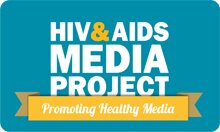1999: “AZT Toxicity”
Although many respected local scientists advocated the use of antiretroviral AZT in the late 1990s, President Thabo Mbeki didn't necessarily agree that that the drug was a good one for people living with HIV/AIDS to be taking.
On 28 October 1999, speaking to the National Council of Provinces in Cape Town, Mbeki said that there was "a large volume of scientific literature alleging, among other things, the toxicity of this drug is such that it is in fact a danger to health". "I have therefore asked the Minister of Health ... to go into all these matters so that ... we ourselves, including our country's medical authorities, are certain of where the truth lies."
He urged the members of the National Council "to access the huge volume of literature on this matter available on the Internet, so that all of us can approach this issue from the same base of information". (read speech) Presidential media liaison officer Tasneem Carrim confirmed Mbeki's Internet research. "The president [has] got a thick set of documents. He went into many sites, including the World Health Organisation's [WHO] one. The president goes into the Net all the time," Carrim was quoted as saying in a Sunday Independent article. This was one of the first times Mbeki questioned conventional medical opinion on AIDS treatment, showing sympathy instead with a fringe group of AIDS dissidents who didn't believe in the efficacy of the drug. Mbeki was widely condemned for his stance.
The Sunday Independent editorialised: "For a leader who has shown such statesmanship in the vital task of making Africa a prosperous continent, it is surprising that President Thabo Mbeki has not shown the same dedication to the most injured citizens in our own country." (see AP report)
In 2000, Tony Leon, leader of the Democratic Alliance and the official opposition, and Mbeki exchanged letters on the AZT debate. Debates over antiretroviral treatment today are still common.






